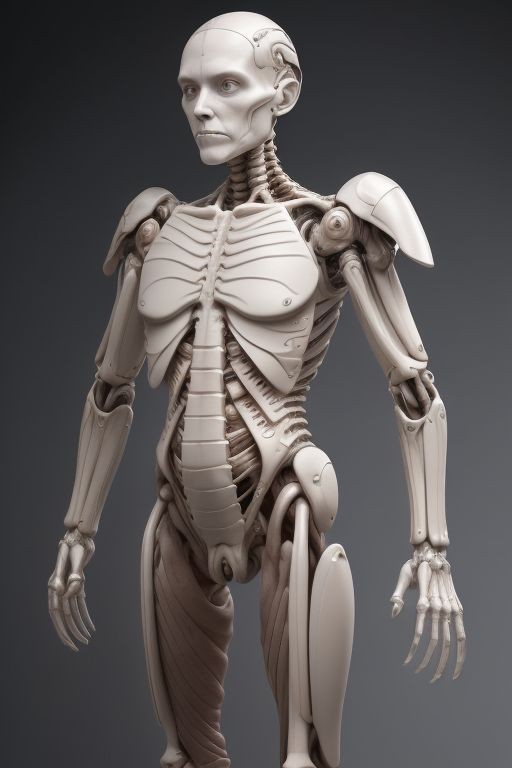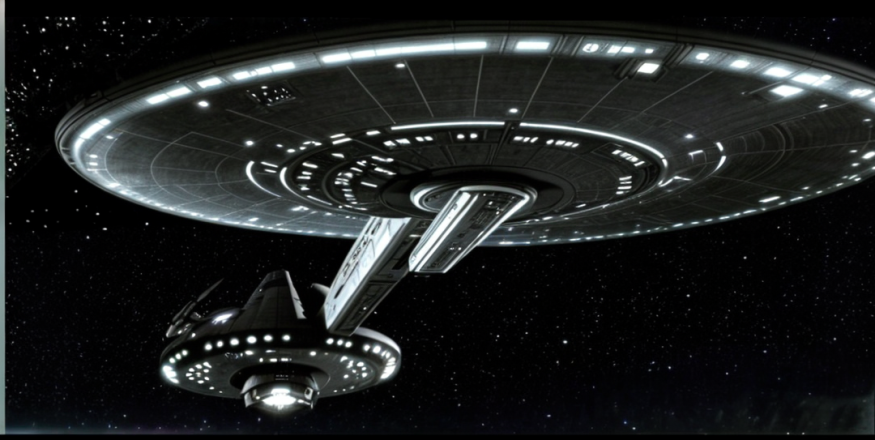 x
x
I was the captain's adviser, Pavel Chekov, counselor to Captain Jean-Luc Picard; his unofficial lieutenant. There were others, of course, who offered their counsel, others in the chain of command, but I was the one who really mattered. Many were hostile to me for this, many feared me, and a few, I think, actually respected me. Most of them, as far as I knew, disliked me, sometimes even the captain.
But I was content with that. It suited me.
I'm not an ugly man, but I'm deformed. I was born with hands attached almost directly to my shoulders, on vestal arms that are, even now, no more than a dozen centimeters in length, though my hands and fingers are almost normal in size and shape, and function quite well. Several vertebrae are missing, but the spinal cord itself is intact. I've got a club foot.
Throughout my infancy and childhood, I was fitted with a series of prosthetic arms and hands which I could manipulate from within by my own hands and fingers. I was also fitted with special spinal braces to support my body; synthetic vertebrae were devised to protect the spinal cord.
The limbs were made to look like real flesh, muscle, and bone, but when I reached adulthood and full growth---slightly taller than average---and I was ready for my permanent prosthetics. I chose to have them constructed of shining metal, plastic, and duranium. I also had the spinal braces augmented with a metal, cagelike exoskeleton which I attach over my clothing every day after I've dressed. For the club foot, I did nothing to compensate. My boot was constructed to fit the twisted shape of my foot.
With the augmentation of the exoskeleton, braces, club foot, and shining arms, I limp swiftly and magnificently along wherever I go. I have never wished to hide my differences. I prefer to celebrate them.
Several hours after receiving his signal, I entered the captain's command salon, a duranium bubble on the forward surface of the Enterprise, protected from the ravages of space by deflector shields and a retractable canopy of anodized metal. The canopy was open when I walked in, and the clear dome revealed thousands of stars shining with a hard and icy light. Surrounded by all those stars, I felt disoriented, afraid I would lose my balance if I moved too quickly.
Picard sat slumped in the command chair in the center of the room. He was staring at the flat monitor screen mounted on a vertical support that rose from the floor. A steady pulsing light moved slowly and regularly across the screen. He turned and looked at me, but didn't say a word.
Picard was a strong, bald-headed man with a neatly-trimmed beard and deep blue eyes. He hadn't regrown his hair despite the re-gen treatments, and more recently dark crescents had become permanent fixtures beneath those blue eyes. He wasn't sleeping well. He hadn't admitted this to me, but I knew, just as I knew about the hours he spent alone in the Wasteland; the seven-year-old downsider daughter he had with a woman not his wife, and his clandestine meetings with Reg Barclay, who had been banished to the lower decks six years earlier. I was his shadow, although he didn't know this.
I had known Jean-Luc nearly all my life, and there was little I didn't know about him. On the other hand, though Jean-Luc had known me equally as long, there was much he didn't know about me, much he didn't understand, and this, I suspect, frightened him sometimes. He was wary of me and did not trust me completely. Yet I had never betrayed him in any way. I admired him more than he knew.
I felt he was holding back, as if reluctant to inform me of something important.
"What is it?" I finally asked.
"That's what," he said, and pointed at the pulsing light. "It's a transmission from Planet No.4."
I felt an electric buzzing down my deformed spine. We were approaching a planetary system, and had been traveling under impulse power for several months now. We were still weeks out from the star, the circling planets laid out like a disk in our path. After so many disappointments, everyone was scared to hope that we would find anything this time. A transmission? It had the potential to change everything on this ship.
I turned and watched the light on the monitor. "So there's someone there?"
"Questionable. It's not much of a transmission. Just a steady, unvarying pulse, no change of wavelength, duration, or intensity. There's no content. And nothing else has been picked up."
"But someone was there," I said. "At one time, someone must have been there. Maybe an entire colony."
"Probably."
"Then something will remain. There could even be people still alive down there, in trouble, waiting for help."
Picard gazed up and out at the stars surrounding us, and I realized that he was wondering whether this would save him, or accelerate his demise.
"Does the bishop know?"
Picard shook his head. "Not yet. But I'll have to inform him soon. Today."
"And what'll the bishop do?" I asked.
Picard just shrugged. He'd been like this for too lo ng now---despondent, apathetic, almost lost, as if he had already given up hope of remaining captain of the Enterprise. It was unlike him, and I had worried about it for some time.
"We need to be careful," Picard finally said. At last he turned from the stars and looked at me. "I have to call a session of the Executive Council. Make the arrangements."
"Do I tell them about this?" I asked, nodding at the pulsing light.
"Yes. Most will find out before you talk to them anyway." He gave me a halfhearted smile, but it quickly faded. "Make it for tomorrow night. I need time to think."
Yes, I thought, we all needed time to think. But he had better not take too long. I nodded, and left.
Time. There wasn't much left of it to Picard because the ship was in crisis----we had not made landfall in all these years, and we had no unified mission. We were traveling almost at random through the galaxy, had been for decades, if not centuries, and there was no consensus of purpose or goal. This had always been the case, at least during my lifetime, but we'd never gone quite so many years without landfall or one kind or another. Uncertainty and a deep restlessness, which had spread throughout the ship in recent months, was now intensifying as we approached our newest destination.
Some had suggested we return to the place from which we started this voyage. But to which beginning? To the last place we actually set foot on dry land? Returning to that place was impossible. To the land we came from before that? Much the same story there. There had always been good reasons for leaving our landfalls and continuing on with our voyage.
Why not, then, return to our original home? The ship was our home. Nearly every one of us had been born aboard the Enterprise, and most of us would die on the ship before our corpses were launched into the cold black reaches of space. Nobody knew where the ship was first built, or first launched, though there was plenty of speculation. Many suggested Earth, the legendary birthplace of humankind. That, I believed, was the most likely. But returning to Earth was not an option, either. We had already tried that once, years before I was born. All they found was a toxic, irradiated world, in ruins and abandoned.
The bishop, on the other hand, claimed that the ship had always existed----a "Mystery" that was usually a large part of his conversion sermons, a large part of his basic theology. A large part of his nonsense.
So we went on, searching for land, sailing from star to star through the unending universal night. Because of the vast distances involved, and the complexities and imprecision of the subspace jumps (which I do not pretend to understand), combined with the time spent under impulse propulsion, we had managed to visit only four stars in the last fourteen years. The first three, while orbited by planetary systems, offered up not a single world close to being habitable; certainly no signs of past human visits. The last star was a desolate solo without even a barren ball of rock in orbit. It was after the visit to the third star, as great a failure as was possible, that the captain's power and influence began to seriously decline, and the calls for new leadership began in earnest.
An astute and clever politician, Jean-Luc had hung onto his position despite the pressures, but we both knew he could not last much longer. The ship's original mission, whatever it was, had become irrelevant. What mattered now was the ship's current mission, and its future leadership. Both were quite undecided.
ns3.16.83.64da2





















